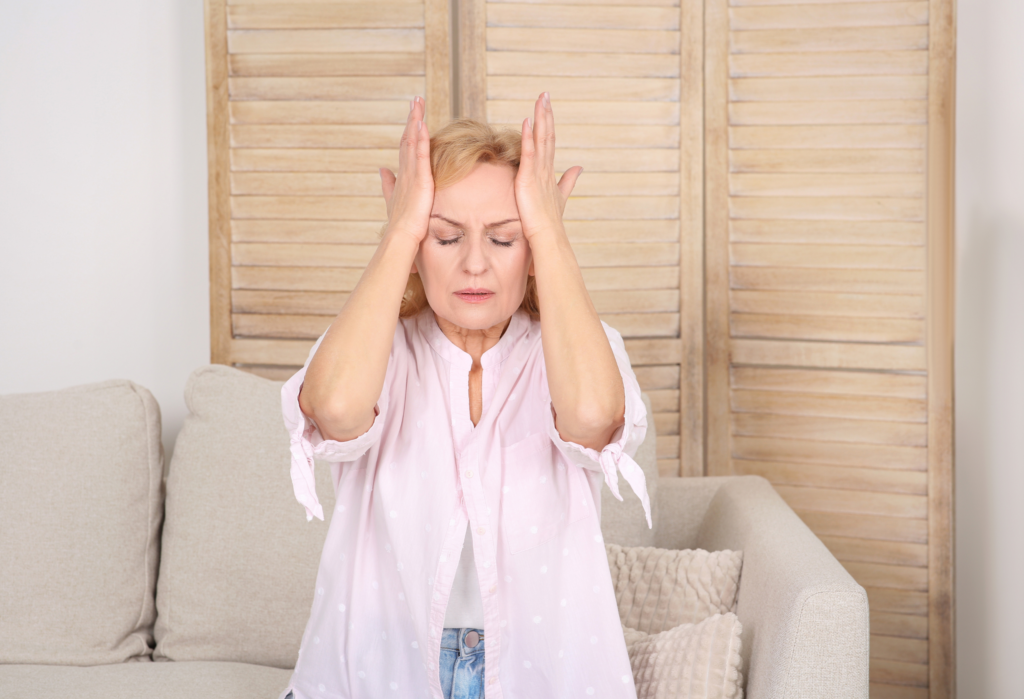
Menopause, a natural transition for women, marks the end of reproductive years. This phase is accompanied by significant hormonal fluctuations that can lead to a range of physical and emotional symptoms. While hormone replacement therapy (HRT) is an option for some, many women seek natural ways to manage these changes. This comprehensive guide explores effective strategies to support hormonal balance and improve overall well-being during menopause.
Understanding Hormonal Changes During Menopause
To effectively address menopausal symptoms, it’s crucial to understand the hormonal shifts occurring within the body.
- Estrogen and Progesterone: These are the primary female hormones responsible for regulating menstrual cycles, reproductive functions, and overall health. As women approach menopause, estrogen and progesterone levels decline.
- Impact of Hormonal Decline: The decrease in these hormones can lead to a variety of symptoms, including hot flashes, night sweats, mood swings, vaginal dryness, sleep disturbances, and weight gain.
Lifestyle Factors Affecting Hormone Balance
A healthy lifestyle plays a pivotal role in supporting hormone balance during menopause.
Diet
Nutrition is essential for maintaining hormonal equilibrium.
- Prioritize whole foods: Incorporate plenty of fruits, vegetables, whole grains, and lean proteins into your diet.
- Include healthy fats: Foods rich in healthy fats, such as avocados, nuts, and seeds, support hormone production.
- Opt for fiber-rich foods: Fiber aids in hormone metabolism and overall digestive health.
- Limit processed foods, sugar, and alcohol: These can contribute to hormonal imbalances.
- Consider phytoestrogens: Foods like soy, flaxseed, and legumes contain phytoestrogens, plant-based compounds with weak estrogen-like effects.
Exercise
Regular physical activity offers numerous benefits, including improved mood, weight management, and better sleep.
- Aim for a balance: Incorporate both cardiovascular exercise and strength training into your routine.
- Consider low-impact activities: Activities like swimming, walking, and yoga are gentle on the joints.
Stress Management
Chronic stress can exacerbate hormonal imbalances.
- Practice relaxation techniques: Meditation, deep breathing, and yoga can help reduce stress.
- Prioritize sleep: Adequate sleep is crucial for hormone regulation.
- Time management: Effective time management can help reduce stress levels.
Sleep
Quality sleep is essential for overall health and hormone regulation.
- Create a sleep-conducive environment: Ensure your bedroom is dark, quiet, and cool.
- Establish a consistent sleep schedule: Go to bed and wake up at the same time each day.
- Limit screen time before bed: The blue light emitted by electronic devices can interfere with sleep.
Weight Management
Maintaining a healthy weight can support hormone balance.
- Focus on a balanced diet: Combine nutrient-dense foods with portion control.
- Regular exercise: Physical activity helps burn calories and build muscle.
- Seek support: Consider consulting a registered dietitian or healthcare provider for personalized guidance.
Natural Supplements for Hormone Support
Some women find relief through natural supplements. However, it’s essential to consult with a healthcare provider before starting any new supplement.
- Black cohosh: Traditionally used for menopausal symptoms, but research on its effectiveness is mixed.
- Red clover: Contains phytoestrogens that may help alleviate some menopausal symptoms.
- Soy isoflavones: Derived from soybeans, they may offer some hormone-balancing benefits.
- Other supplements: Ginseng, dong quai, and vitamin E are sometimes used, but evidence for their effectiveness is limited.
MenoRescue: A Potential Solution

MenoRescue is a natural supplement designed to support women during menopause. It contains a blend of ingredients, including ashwagandha, green tea extract, sage leaf, and red clover, which may help regulate hormones and alleviate menopausal symptoms.
Important Note: While MenoRescue may offer benefits, individual responses to supplements can vary. Always consult with your healthcare provider before starting any new supplement.
Additional Tips
- Regular check-ups: Schedule regular appointments with your healthcare provider to monitor your health.
- Mind-body connection: Explore practices like acupuncture, hypnosis, or biofeedback for additional support.
Conclusion
Balancing hormones during menopause requires a holistic approach that combines lifestyle changes, dietary adjustments, and potential supplementation. By prioritizing your overall well-being and seeking guidance from healthcare professionals, you can effectively manage menopause symptoms and improve your quality of life.
Disclaimer: This article is intended for informational purposes only and does not constitute medical advice. Always consult with a healthcare provider for any health concerns or before starting any new treatment or supplement.
Would you like to focus on a specific aspect of menopause, such as hot flashes, sleep disturbances, or weight management?
